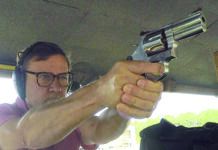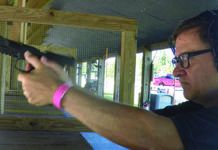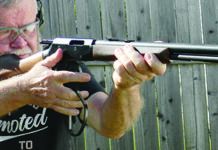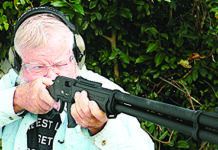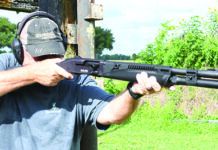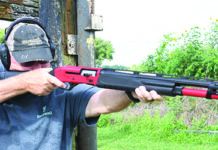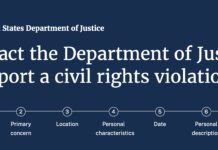(GunReports.com) — The first dreadful pieces of news on Friday, December 14, out of Newtown, Connecticut coalesced into yawning horror that would grip a nation and sadden our world. Twenty-six people—20 first graders—were dead at the hands of a lone, deeply troubled young man wielding an AR-15 style .223 and two semi-automatic handguns. People who own guns—people who love the freedom and responsibility that accompanies firearms ownership—are every bit as appalled and shocked as the non-gun owning public. We love the traditions, the history, the technology of firearms, and we grew up with the sense of deep responsibility owning guns brings. We gun owners have a deeply held belief in gun safety, instilled by our parents and our grandparents. Owning a gun means living by a set of fearfully engrained rules. Those rules belong to us. We live by them. And when someone breaks those rules we feel betrayed, appalled, and angry. We mourn Newtown as Americans—not as gun owners or non-gunowners. Children are dead, and we grieve.
The call for stricter gun control in this game-changing environment is inevitable. These discussions will go on for some time and we will pay careful attention to the arguments on both sides. But for now, Gun Tests magazine chooses to focus on the immediate and the practical. First, as we all know, guns are a fact of life in this country, and to “ban” them will never work. But we do need to have a good faith conversation amongst ourselves about the essence of gun control.
Gun owners: start here. Control your guns. Locks. Safes. Sequestered ammunition. Cleared chambers. Open actions. Know where your guns are. Never lose custody. Live by the simple rules passed down from parents to children to grandchildren. Remind yourselves of the responsibilities we share and we cherish.
Secondly, concomitant with the debates in this country about gun control comes the debate about mental illness—and the absolutely essential requirement that dangerous objects like guns be kept well away from those would use them in the commission of a crime. We are the first line of defense. Writing in CNN.com, researchers Katherine S. Newman and James B. Knapp of John Hopkins University recently wrote: “Rampage shootings are never spontaneous. They are planned, often for months in advance. We don’t know yet whether the Newtown shooter, Adam Lanza, gave any warnings, but in the episodes we studied, shooters commonly told their peers—often in a veiled and ambiguous fashion—what they had in mind.”
Newman and Knapp wrote the 2004 study called “Rampage: The Social Roots of School Shootings.” Following extensive interviews, they drew a composite of the typical school shooter. They are often intelligent, high academic performers who don’t fit in socially. They have failed to join sports teams, or school clubs and their daily social experience is tense and full of friction. Their sense of rejection takes on an ominous importance in their lives and they look for ways to gain attention “to reverse their damaged identities.”
The rampage shooting is the last act in a long chain of events as they search for recognition and acceptance. Their earlier acts have failed. They are determined that their last act will achieve success. Leading up to the event, they may have discussed the idea of taking a life. These statements, perhaps spoken in jest but with increasing fervor, have elicited positive reactions from fellow students. Reason is now displaced by a deadly goal. Parents and friends are close enough to see these signs—and potentially intervene.
Access to guns closes the loop—and that’s where we as gun owners need to take a stand. Look in the mirror. Make sure your guns are as safe as you can make them. Then observe, counsel and most of all befriend loved ones who may be contemplating crimes you can scarcely begin to imagine. The debates will rage around us and we’ll of course pay close attention to the outcomes. But today, the opportunity to save someone’s life, perhaps the life of a child, begins with us.
—Gun Tests Staff




